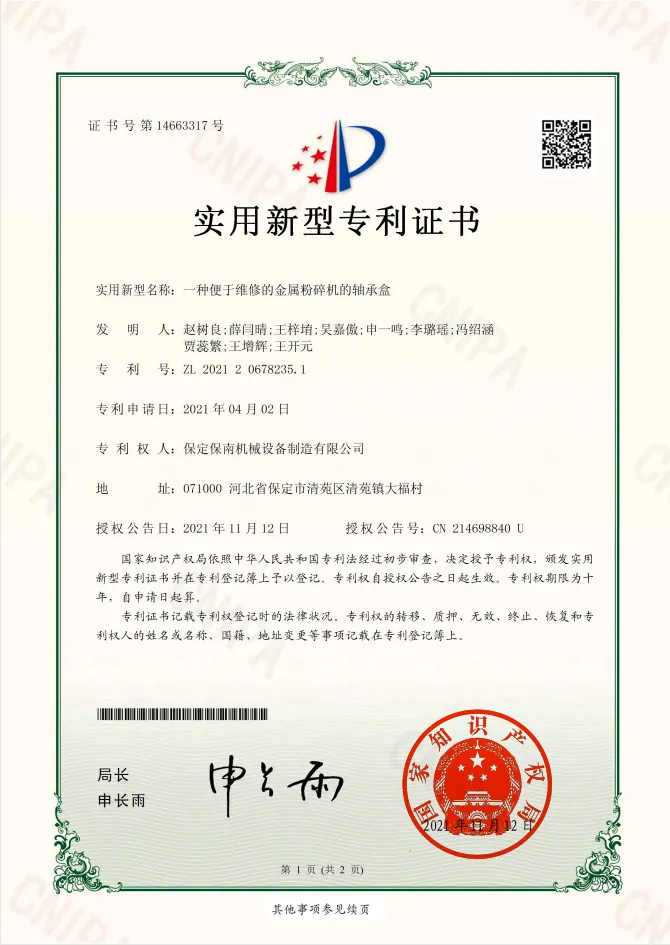
12 月 . 04, 2024 16:18 Back to list
Aluminum Recycling Plant A Sustainable Future
In a world increasingly aware of the pressing need for sustainability, aluminum recycling plants stand out as crucial players in the quest for a greener future. The process of recycling aluminum is not only beneficial for the environment but also economically advantageous. With aluminum being one of the most abundant metals on Earth, it is imperative to understand the importance of its recycling and how aluminum recycling plants contribute to a more sustainable society.
Aluminum is used in a myriad of products ranging from cans and foil to building materials and automotive components. The lightweight and corrosion-resistant nature of aluminum makes it an ideal choice across various industries. However, the production of new aluminum from raw bauxite ore is resource-intensive and environmentally damaging. It requires significant energy input and leads to greenhouse gas emissions, deforestation, and habitat destruction. Thus, recycling aluminum is a vital solution that conserves natural resources and energy.
The aluminum recycling process begins with the collection of scrap aluminum
. This can come from various sources, including discarded electronics, transportation vehicles, packaging, and construction materials. Once collected, the scrap is transported to the aluminum recycling plant, where it undergoes a series of steps to ensure it is suitable for reuse.Firstly, the scrap aluminum is sorted to remove impurities. This can involve manual sorting as well as the use of advanced technology, such as magnets and infrared sensors, to differentiate between various types of metals and materials. The sorted aluminum is then cleaned to remove any contaminants, such as paint or adhesives, before being shredded into smaller pieces.

Following the shredding phase, the aluminum pieces are melted in a re-melting furnace. Interestingly, recycling aluminum requires only 5% of the energy needed to produce new aluminum from ore. This remarkable energy saving not only helps reduce production costs but also minimizes carbon emissions associated with energy generation. The molten aluminum is then cast into ingots, ready for manufacturing into new products.
One of the key advantages of aluminum recycling plants is their ability to operate efficiently and contribute to local economies. By creating jobs in the recycling industry, they provide employment opportunities and stimulate economic growth. Additionally, the recycled aluminum can be sold at lower prices than newly produced aluminum, making it a cost-effective choice for manufacturers. This cycle encourages a more sustainable economy, promoting the use of recycled materials while reducing the demand for virgin resources.
Moreover, aluminum recycling plants play a significant role in reducing landfill waste. It's estimated that recycling one ton of aluminum can save up to 9 tons of carbon dioxide emissions, aligning with global efforts to combat climate change. The diversion of aluminum waste from landfills not only conserves space but also reduces the environmental impact associated with waste disposal. In a world where landfill capacity is diminishing, recycling becomes increasingly important.
The impact of aluminum recycling extends beyond environmental benefits—it fosters community awareness and engagement. Educational initiatives within local communities can promote recycling practices, making individuals aware of the importance of responsible disposal and recycling of aluminum products. These initiatives can lead to increased participation in recycling programs and greater overall community support for sustainable practices.
In conclusion, aluminum recycling plants are essential in the transition to a sustainable future. They provide a vital service by transforming waste into valuable resources, creating jobs, conserving energy, and reducing environmental impacts. As global awareness about climate change and resource depletion continues to grow, it is crucial to support and invest in the infrastructure that facilitates aluminum recycling. By doing so, we can ensure a cleaner, healthier planet for future generations, leveraging the full potential of one of our most recyclable materials—aluminum. Embracing recycling not only benefits the environment but also paves the way for a sustainable and economically viable future.
Latest news
Unveiling the Power of Eddy Current Separator
NewsSep.25,2024
Transform Your Home Recyclin:home metal shredder
NewsSep.25,2024
The Future of Waste Management with Recycling Line Picker
NewsSep.25,2024
The Benefits of a Metal Recycling Plant
NewsSep.25,2024
Revolutionize Material Separation with Onwang Technology
NewsSep.25,2024
Innovative Waste Management: Unveiling the MSW Sorting Plant
NewsSep.25,2024